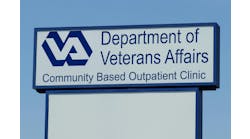This year a new Cancer Screening Research Network funded by the National Cancer Institute (NCI) will launch a pilot study, known as the Vanguard Study on Multi-Cancer Detection, to address the feasibility of using multi-cancer detection (MCD) tests in future randomized controlled trials.
MCDs are blood tests that can screen for several types of cancers. The study will enroll up to 24,000 people to inform the design of a much larger randomized controlled trial. This larger trial will evaluate whether the benefits of using MCD tests to screen for cancer outweigh the harms, and whether they can detect cancer early in a way that reduces deaths.
The National Institutes of Health (NIH) has launched the network to evaluate emerging technologies for cancer screening. Eight groups have received funding from the National Cancer Institute (NCI), part of NIH, to carry out the initial activities of the network.
“Our goal is to systematically evaluate cancer screening technologies to understand how best to use them to ultimately save lives. Data collected through these clinical trials can be used to develop evidence-based guidelines for cancer screening,” said Lori Minasian, M.D., deputy director of the Division of Cancer Prevention at NCI, in a statement.
Initial funding will provide resources for study coordination, communication activities, statistics and data management, and accrual and enrollment of participants into clinical trials and studies. Fred Hutchinson Cancer Center in Seattle will serve as the network’s coordinating and communications center (CCC) and the statistics and data management center.
Leaders from Fred Hutchinson stress that although MCD tests are being commercially marketed as effective cancer screening tools, they are so new that there is no research showing they actually work to reduce deaths from cancer. The U.S. Food and Drug Administration has not authorized any MCD tests. But if research shows that these new blood tests are successful at detecting cancer early and preventing cancer-related deaths, it could help reshape the cancer landscape. Any positive results would need to be confirmed by further testing.
“There is a real urgency to do this research,” said Garnet Anderson, Ph.D., senior vice president and director of Fred Hutch’s Public Health Sciences Division, in a statement. Anderson, who is co-leading the CCC, added that “there are about 50 companies all developing new kinds of tests, and we feel strongly that they need to be rigorously evaluated before being promoted in the community. We need to know if they’re accurate enough and how physicians can best use them.”
The seven additional funded sites will lead efforts to enroll participants in their geographic and coverage areas and include:
• Henry Ford Health + Michigan State University Health Sciences in Detroit
• Kaiser Permanente Northern California, Kaiser Permanente Southern California, and Kaiser Permanente School of Medicine
• OU Health Stephenson Cancer Center at the University of Oklahoma Health Sciences in Oklahoma City
• University of Colorado Cancer Center in Aurora
• University of North Carolina Lineberger Comprehensive Cancer Center in Chapel Hill
• Virginia Commonwealth University in Richmond, Inova, and Sentara Health
• Washington University School of Medicine in St. Louis
The Department of Defense Uniformed Services University and the Department of Veterans Affairs will also participate as sites funded by their respective agencies.
Sponsored Recommendations
Sponsored Recommendations


